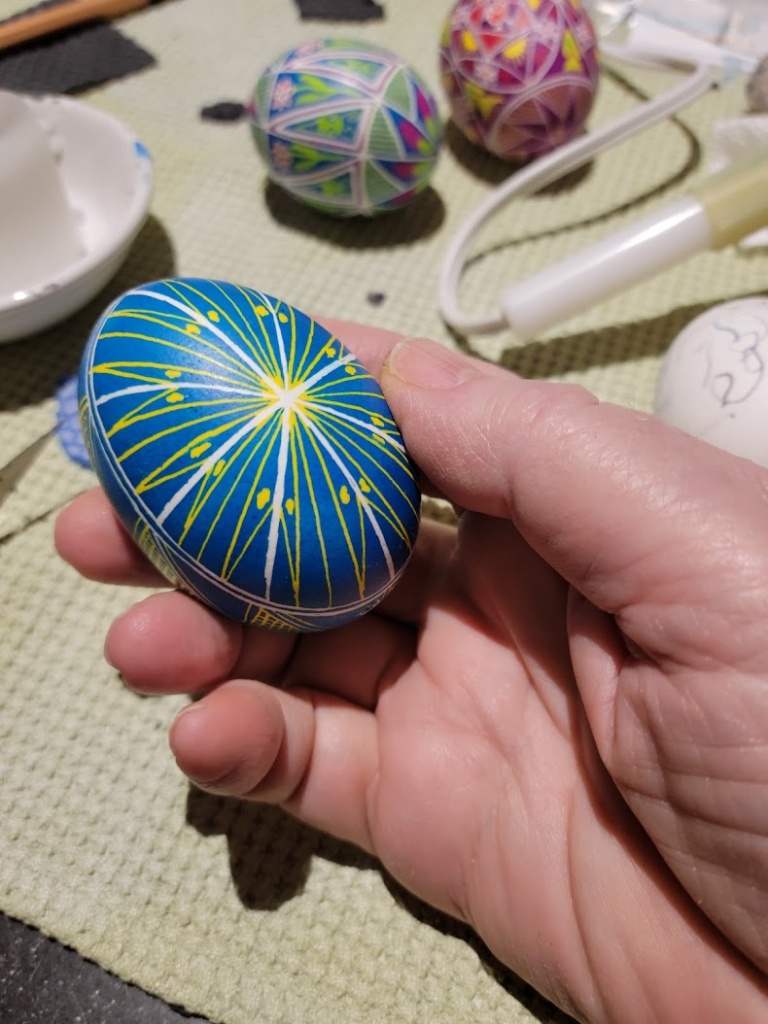
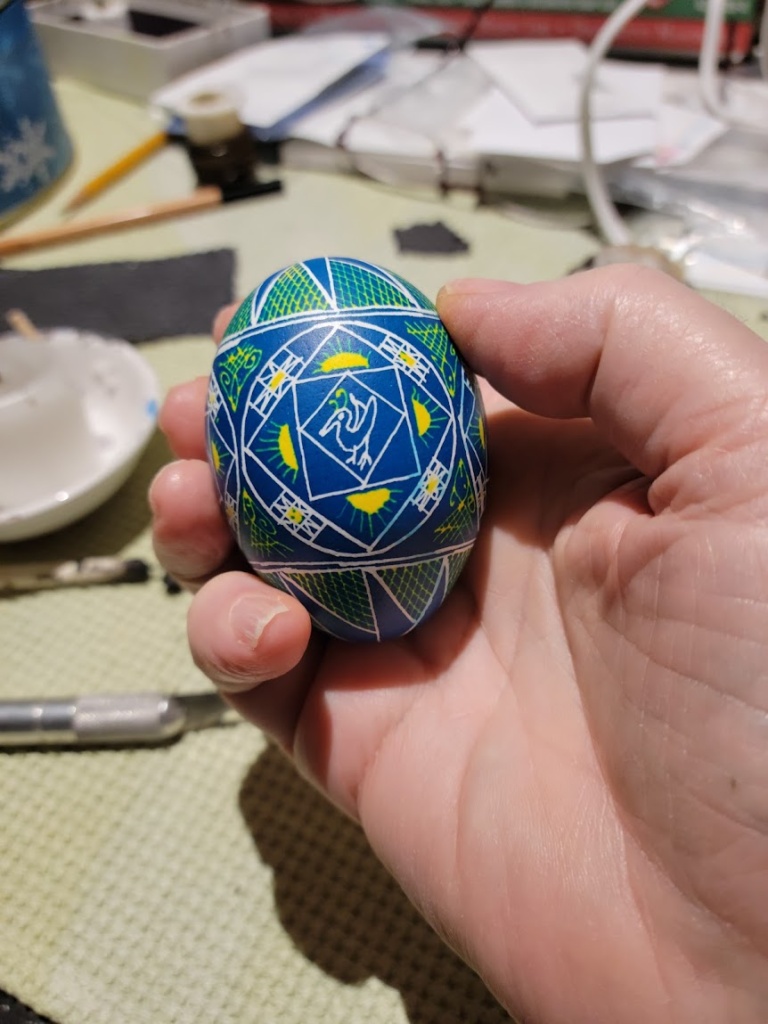
Legend has it that the world won’t end as long as someone is making pysanky. Thinking of Ukraine. Blue and yellow.
writes about war from a young person's view #bannedbyrussia


Legend has it that the world won’t end as long as someone is making pysanky. Thinking of Ukraine. Blue and yellow.
Here’s a recent Amazon.com “review” of Don’t Tell the Nazis: This should not be permitted in our school library. This is not a children’s book. It describes in graphic detail violence against women and children. My child brought this home and we have gone chapter by chapter writing a summary for his class, but I should have investigated the content prior to him using this book. I will be speaking to the school board and superintendent about the removal of any of this disturbed author’s works.
Within hours of the above “review” being posted, someone trolled through my Goodreads list and left a comment on my review of a piece of old Soviet propaganda published in book form titled Famine, Fraud and Fascism: The Ukrainian Genocide Myth from Hitler to Harvard. It’s long been part of the Soviet (and now Putin) playbook to label Ukrainians as fascists and therefore killable. Before WWII, they were labeled kulaks to identify them as “enemies of the people” and a killable group. In the 1930s, using this propaganda method, the Stalinists killed millions of Ukrainians by starving them. My review of this book was simple. I gave it a single star and noted that it was hate propaganda. The troller’s comment was, “found the kulak”. Everything old is new again.
When one writes books on topics that others won’t touch, it’s a given that some people will direct hate your way. I’m not a shrinking violet, but thought the timing was interesting. Two attacks within hours of someone like me, a mere children’s writer. Multiply this by all of the other Russian information warfare out there. Smells of desperation.
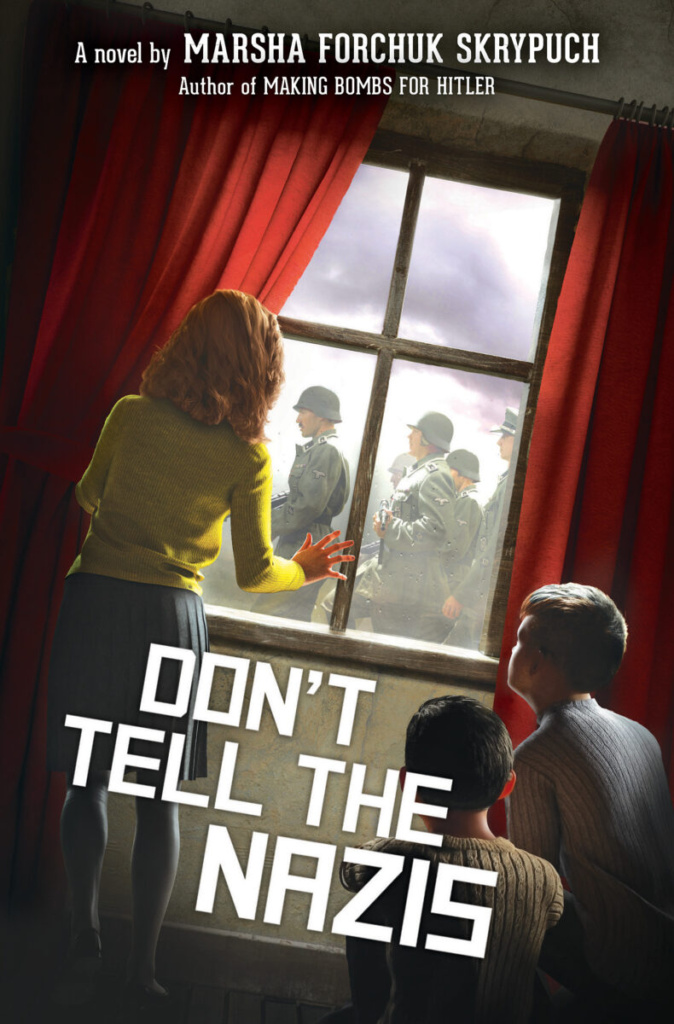
If you’re feeling helpless as maternity hospitals, kindergartens and children’s cancer hospitals are routinely bombed, yes, please do pray. But also, please donate. This is a war of attrition and Ukrainians are dedicated to the freedom of their country but they’re outnumbered. Please donate. Canadians, the Canada-Ukraine Foundation is the most efficient way to give Ukraine help. Money is best so the exact supplies needed can be purchased.
I had also been recommending the Red Cross because the Canadian government is matching donations, but I’m alarmed with their negotiations with Lavrov and their potential opening of an office in Rostov-on-Don, which basically legitimizes the abduction of Ukrainians in the Russian “humanitarian” corridors. I think many Red Cross donators would be appalled that their well-meaning donations would go to such a use. More on this in this Reuters story.
If you are American, the US-Ukraine Foundation is the best place.
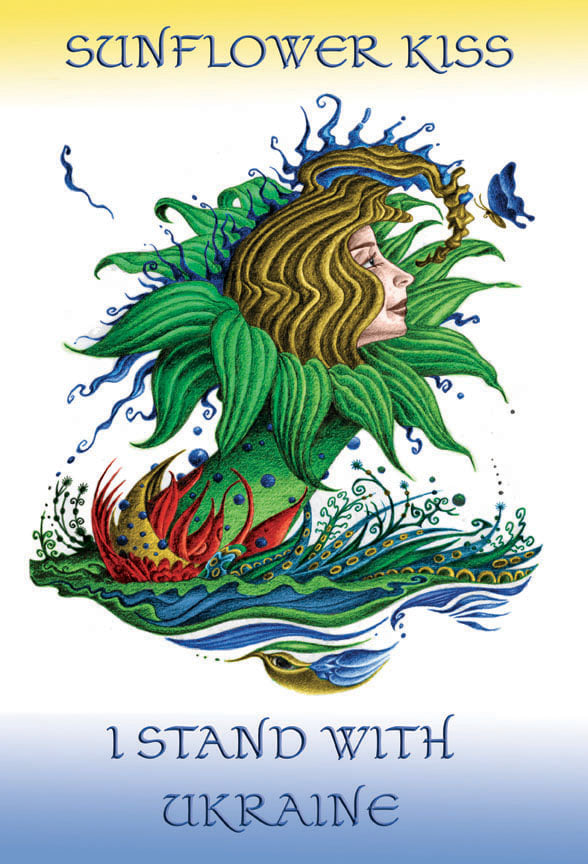
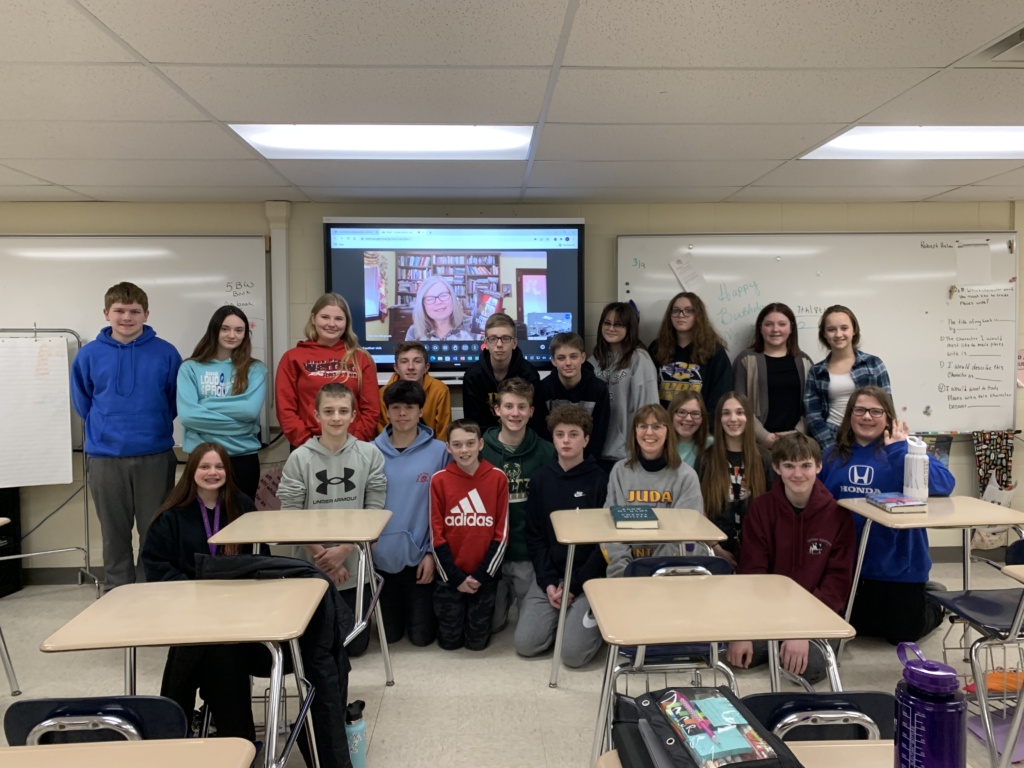
Last Wednesday I had the pleasure to speak with these articulate students from Juda Wisconsin. The session went well beyond the usual hour because in addition to talking about Don’t Tell the Nazis and the Holocaust, we discussed Putin’s authoritarian regime and the horrific assaults on Ukraine right now, and how reading history informs the present. Thank you, Juda students, for your well-considered questions, your compassion and empathy.
Since this mad war began, my virtual visits have continued but students’ questions have changed. My WWII books give context and history to Putin’s expansionist fantasies. They also help students step into the shoes of a Ukrainian on the ground during times of the past that were much like today.
But while I can compartmentalize my rage and despair long enough to do the presentations, I haven’t been keeping up with posting photos of all the smart, inquisitive, and compassionate young people that I get to meet. So here is a gallery.
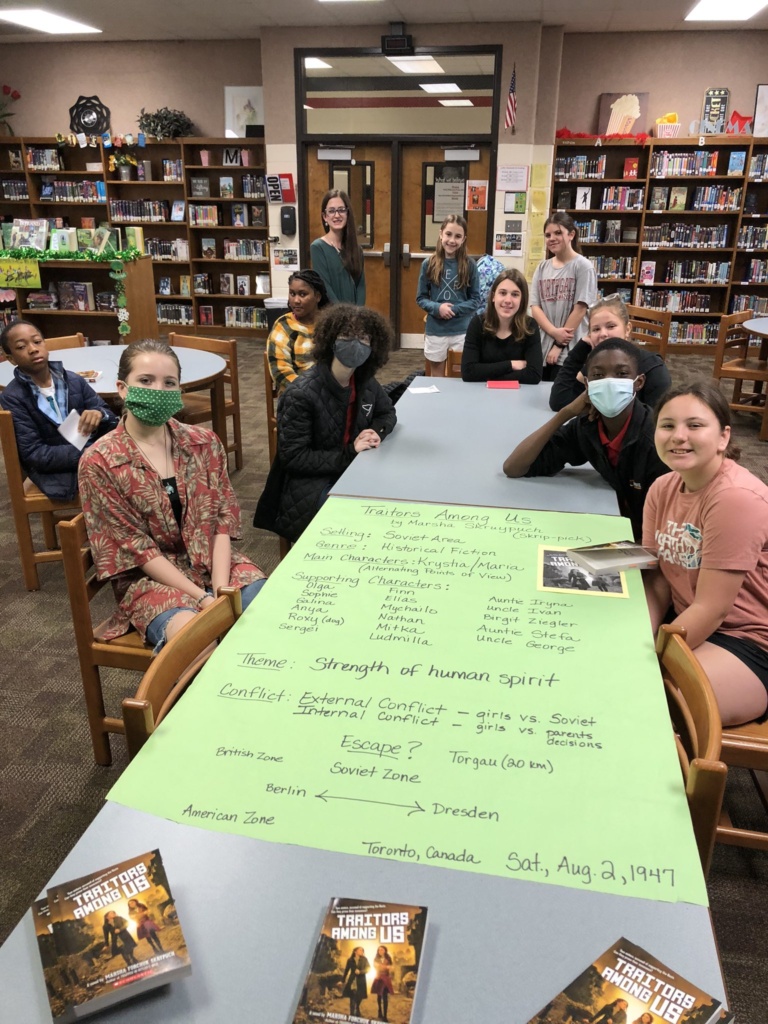
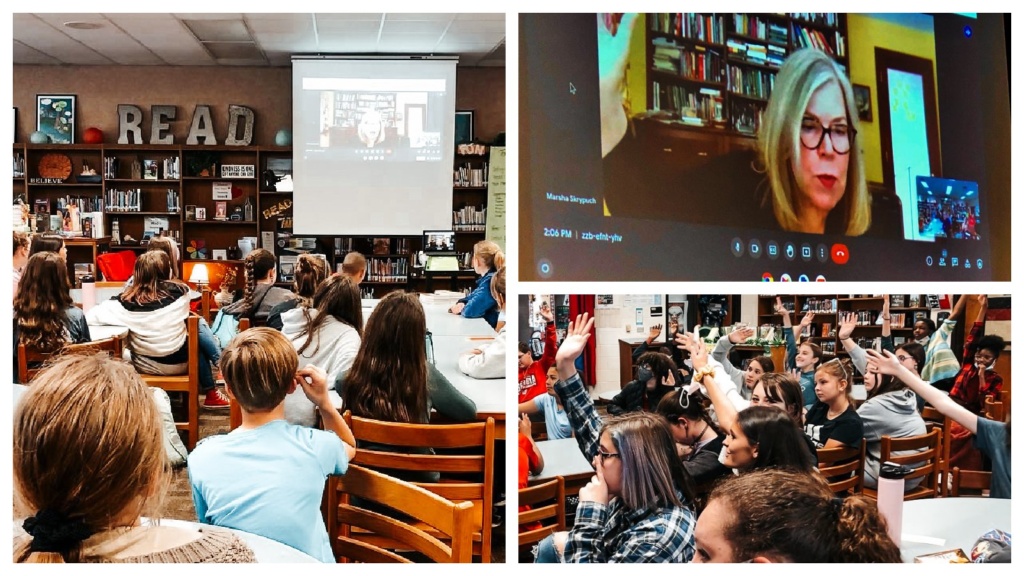
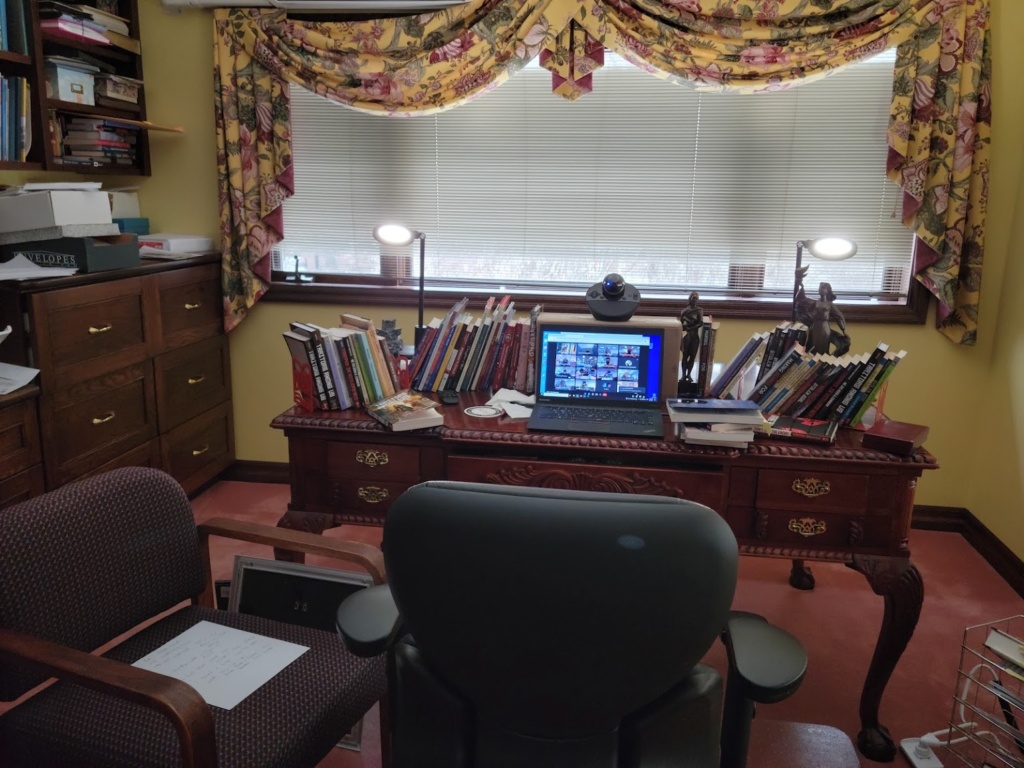
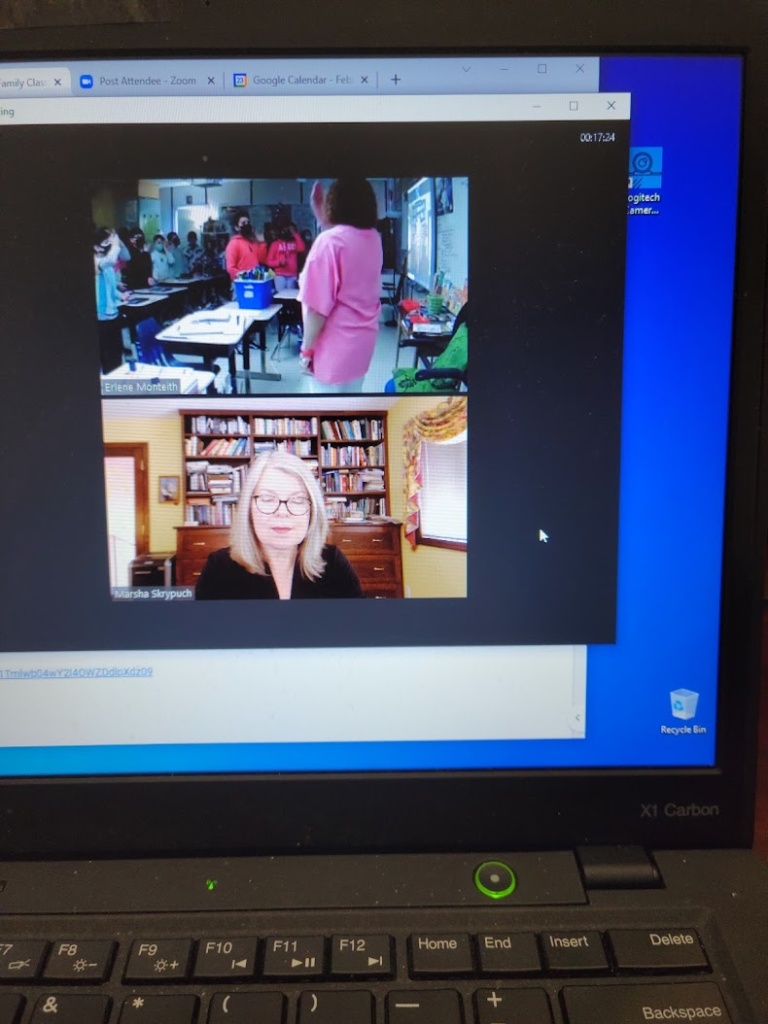
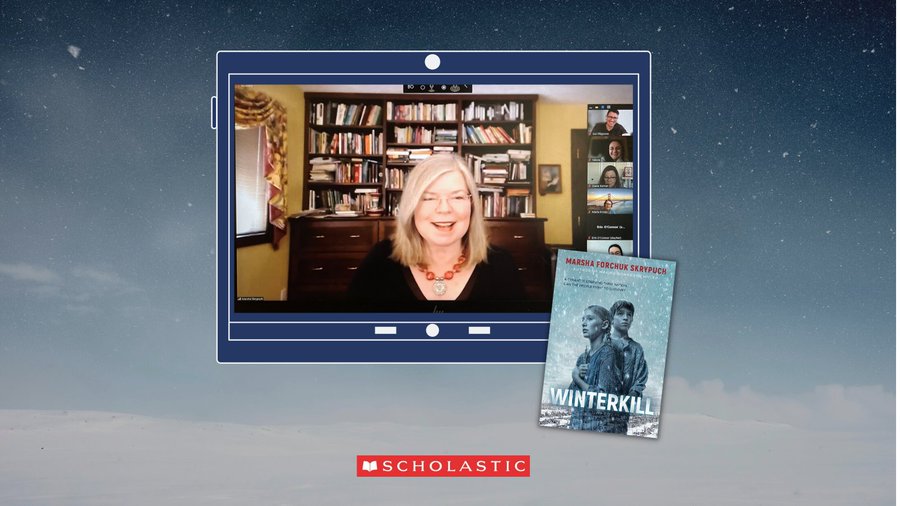
In this interview I recommended that kids donate to their local Red Cross because here in Brantford they could go to the Red Cross building and donate their allowance. Since then, the international Red Cross is thinking of opening an office in Rostov-On-Don, which is a tacit condoning of Russia’s mass kidnapping of Ukrainians whose cities they’ve destroyed. More info in this Reuters news article. Info about donating here.
My Ukrainian grandparents homesteaded in Alberta in the early 1900s and they never would have survived had it not been for the friendship and kindness of the Indigenous peoples who were already there.
In WWI, Ukrainian immigrants and other new immigrants were scapegoated by our government and labeled as enemies of their adopted country. Thousands were interned in camps across the country and forced into back-breaking work.
My two novels set during the WWI internment operations both reference the interaction between Indigenous people and Ukrainian immigrants. Why? Because the internment camps were often built on the hunting grounds of an Indigenous community, so while Ukrainians and other immigrants were unjustly interned by the federal government, Indigenous communities lost their traditions and their source of food. A double slap of intolerance.
Here’s more about those two books:
Dance of the Banished is partly set in the Kapuskasing internment camp, a complex that destroyed a Cree hunting area. There is interaction between the internees and the Cree community.
Prisoners in the Promised Land is set in Spirit Lake Quebec with the internment camp on the destroyed hunting area of the Pikogan community. Anya encounters members of the community.
My WWII novel Stolen Girl also has a Ukrainian-Indigenous connection. That novel, about orphaned Nadia who settles into Brantford Ontario with her adoptive refugee parents after the war. The neighbourhood they move into is mostly refugees and Indigenous people because my research bore that out. Nadia’s best friend at school is an Indigenous girl.
Do you know of other books that explore this Ukrainian-Indigenous connection? Please let me know if you do and I will list them on this page.
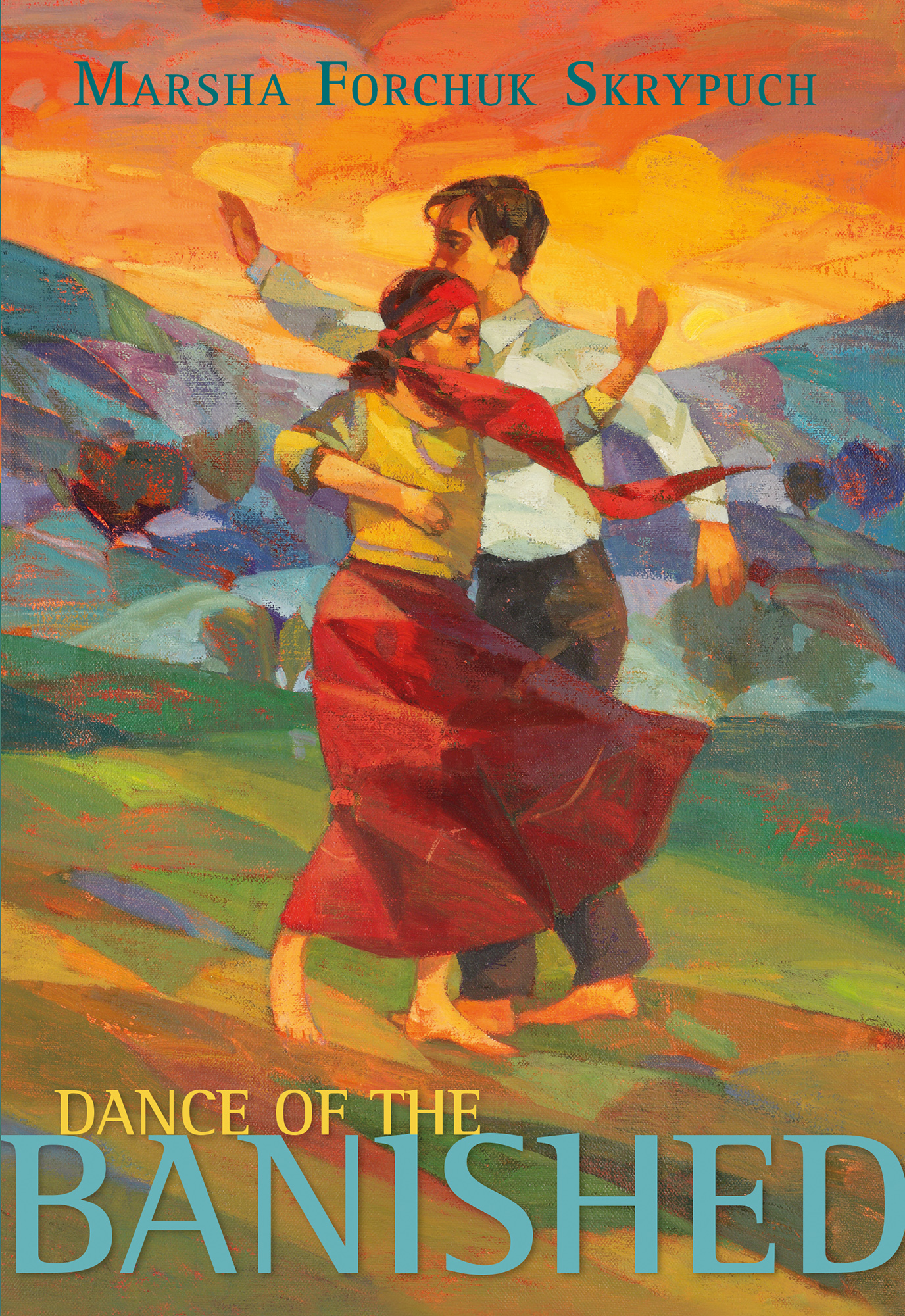

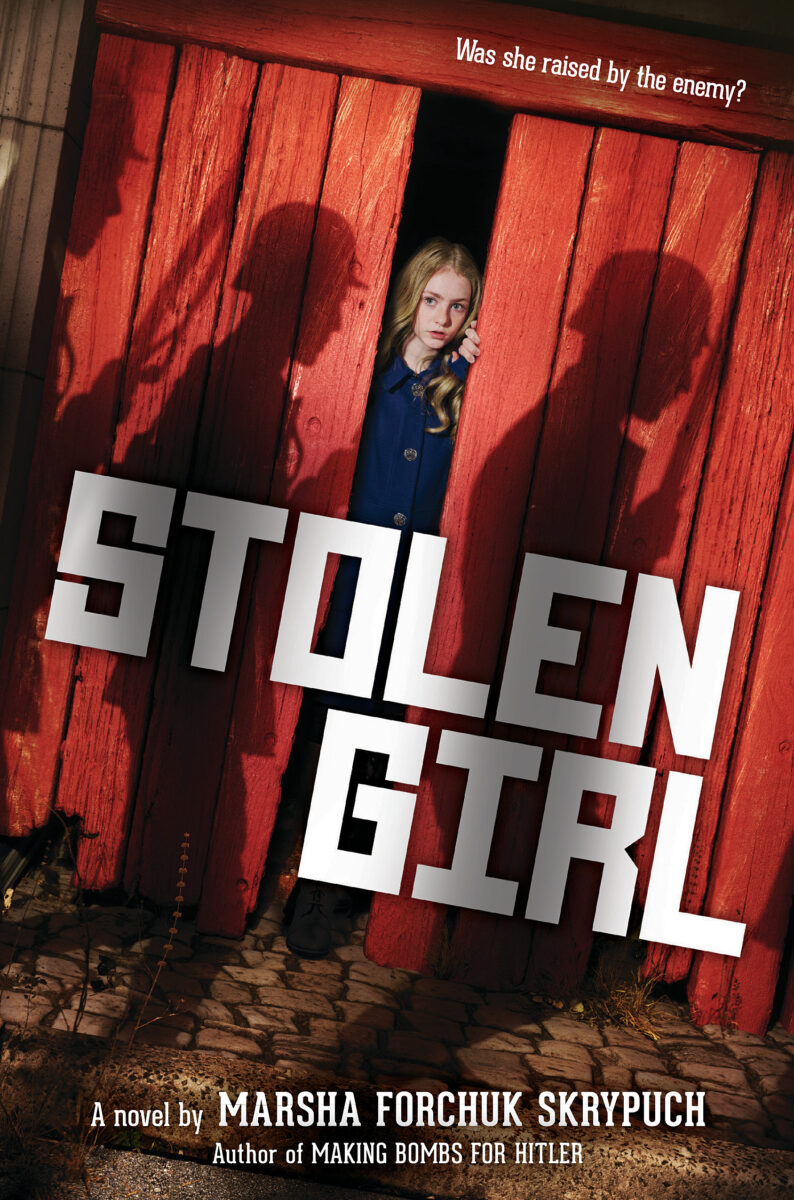
Kokum’s Babushka is a picture book treatment.
Also, Larry Warwaruk’s novels:
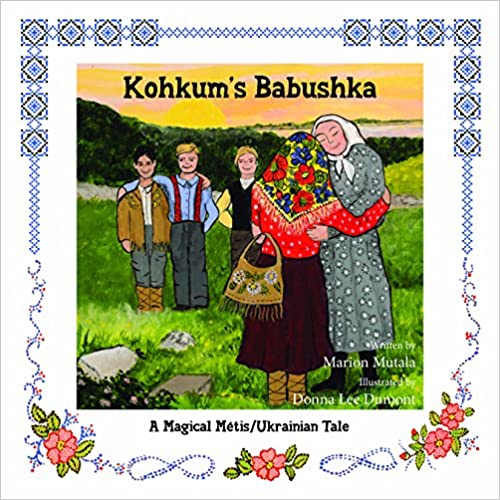
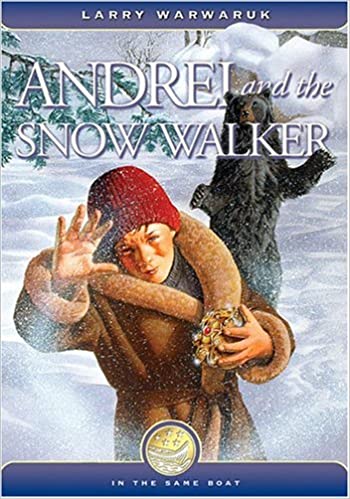
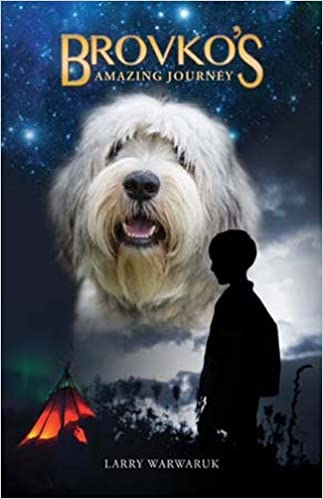
It was a fun couple of days presenting to all of the 5th grade students from Riverside Elementary in Evans GA over the course of two sessions, and then catching up with two schools who had been scheduled for quick drop-ins for World Read-Aloud Day but who got ice-stormed out.
It was a small but mighty group in St. Louis MO made up of avid readers who asked GREAT questions. Their teacher emailed later to let me know that one of her students left the meeting completely in AWE and said “my year has been made!” Isn’t that the kind of feedback that melts an author’s heart?
During one of the sessions with Riverside, a student who is writing a big fat fantasy novel with a friend came up to the screen and we had a GREAT discussion about what to do when you write yourself into a corner. At St. Pat’s in MI, we had a great conversation about how those things that challenge us also become our gifts.
I miss seeing readers in person, so it’s great to meet with kids through the ether this way.
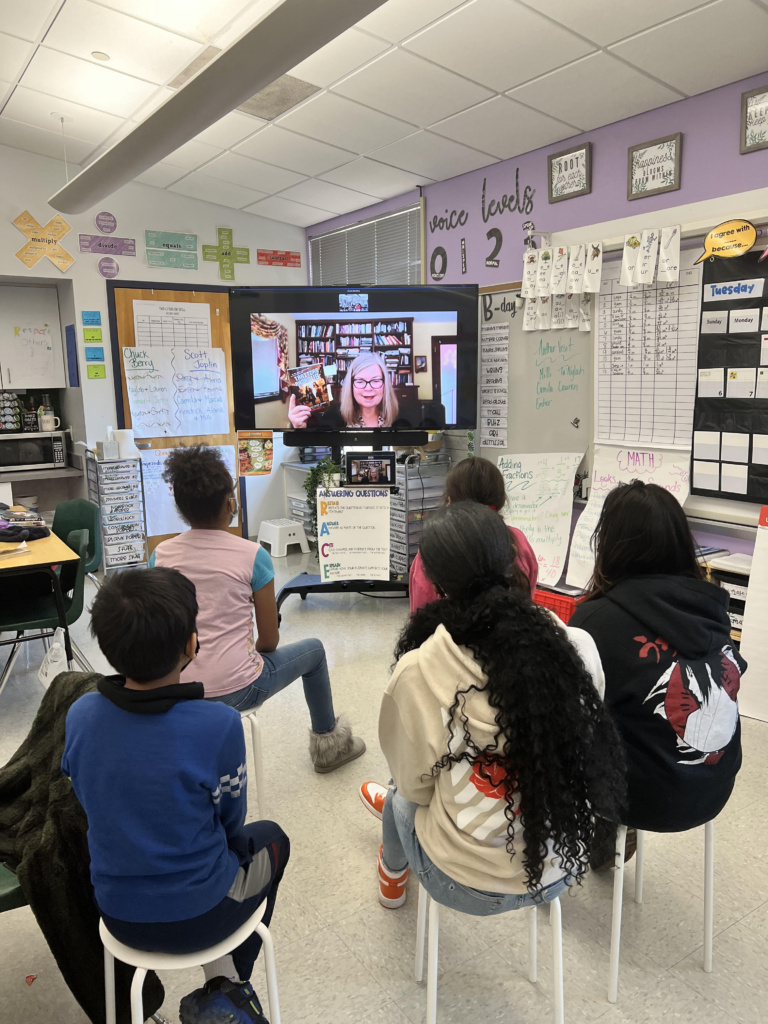
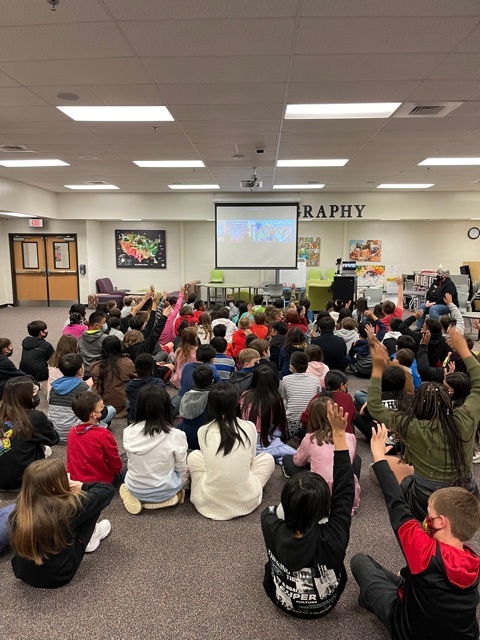

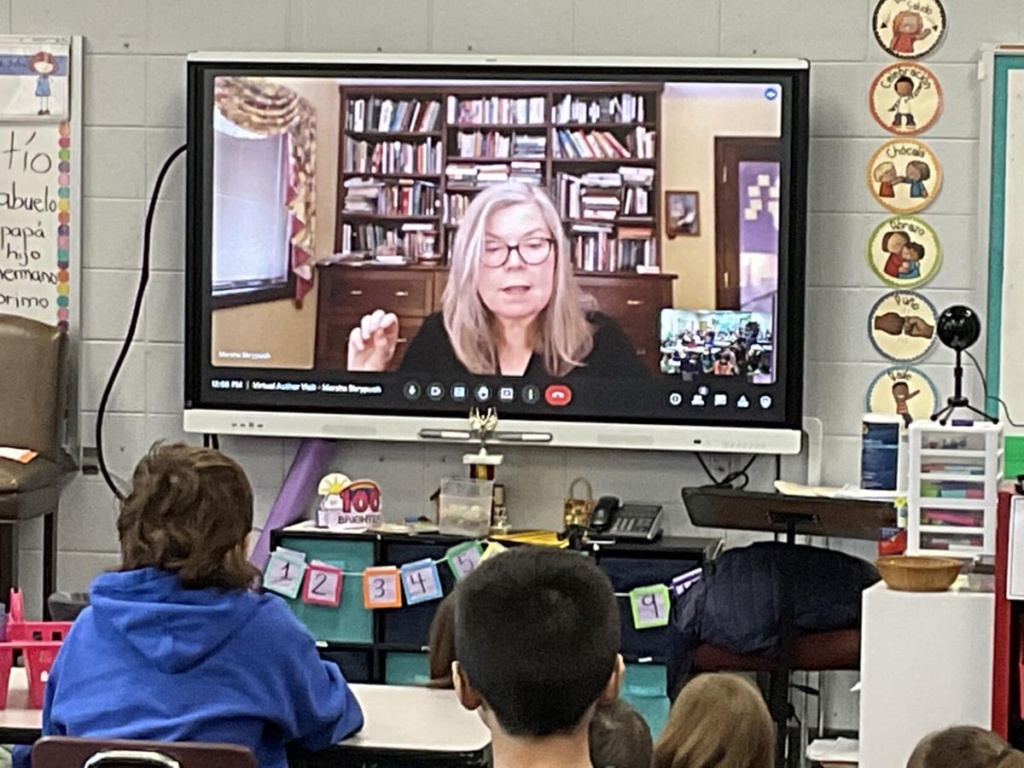
Such a pleasure to visit with engaged students.